- Home
- Helen Dunmore
Tide Knot Page 3
Tide Knot Read online
Page 3
Faro. He came last night. If my mind had been closed, I would never have heard the voice of Ingo. That’s why I can’t settle into St. Pirans. I mustn’t. I’ve got too much to lose.
“Saph! Saa-aaphh!”
I spin round. Sadie bounds forward. It’s Conor, running down the beach.
“There you are, Saph. I’ve been looking all over for you. Come on.”
“What’s happened?”
“Something amazing. Come quick—”
My heart leaps. I know what Conor’s going to tell me. We’re going back to Senara. Mum’s tired of St. Pirans. Maybe—maybe she’s splitting up with Roger. We’re going home!
“There’s a pod of dolphins in the bay. They’re playing off Porthchapel, close in. Mal’s dad, Will, is taking the boat out, and he says we can both come if we get there quick.”
“What about Sadie?”
“We’ll drop her at the house on the way.”
Our house is in a street close to Polquidden, tucked away behind the row of cottages and studios that faces the beach. We leave Sadie there and race through the narrow streets. Even Conor’s out of breath. He ran all the way from Porthchapel so that I could get the chance of going out in the boat too.
“Thanks, Conor!”
“What?”
“For not just going out…in the boat…without me.”
“I wouldn’t go without you.”
We cross the square, go down the Mazey, and we’re nearly there. Porthchapel Beach stretches ahead. There’s a little crowd of people and a bright orange inflatable boat in the water.
“Come on, Saph! They’re ready to go.”
Mal’s dad gives us each a life jacket, and we fix them on while he starts the engine. Mal splashes thigh deep in water, pushing the boat out.
“We’ll take her out in the bay a bit; then I’ll kill the engine so we don’t scare them,” says Will. “Mind, they like boats. I reckon there’s about twelve of them in the pod, could be more. November—it’s late in the year to see them here.”
There are a dozen or more people at the water’s edge. More are hurrying down the slope from the putting green. I shade my eyes and scan the water. Porthchapel Beach is sheltered, and the sea is always calmer here than on Polquidden. Suddenly I see what I’m looking for. The water breaks, and a dark, glistening shape breaches the water. The back of a dolphin, streaming with water as it leaps and then dives back into the sea. Another dolphin breaches, and then another. They swim in a half circle, in tight formation. Suddenly five of them leap at once, as if the same thought had come to them all at the same instant.
One dolphin is much smaller than the others. A young one, probably a calf born in the spring. It’s almost a baby, even in dolphin terms.
Dad taught me about dolphins. He loved them. He took loads of photographs of them. He knew the ones that came back year after year, but he said it was wrong to give dolphins human names and human characteristics. They know what their names are, he always said. They have their own language. They’re better communicators than we are.
The dolphin calf is swimming close to his mother. She’ll be taking him south soon, to warmer waters. Wherever the dolphins are, Ingo is there too, I remember that. Even when they show their backs above the water or leap right through the skin into the Air, they still carry Ingo with them. So Ingo must be very close….
A pod is like a family of dolphins, and here they are, playing in full view of the humans they ought to fear. I count them. Six…eight…eleven…yes, Will is right, there are twelve dolphins here. They don’t seem at all afraid of us. But they should be afraid. Why should they trust a boatload of humans?
They’re coming closer and closer inshore. People on the beach are waving and clapping. Will switches off the engine and lets the boat rock. A long swell moves under the water’s surface. Little waves slap the side of our boat. I sit forward, tense, waiting. Something is about to happen. Every sound, even the noises of the sea and the people cheering the dolphins, seems to die away.
One of the dolphins leaps high out of the water.
“She’s seen us. She wants to talk to us,” I say under my breath to Conor. Mal glances at me.
Conor turns casually and murmurs in my ear, “Be careful, Saph.”
Will stands up, legs braced for balance, camera in hand. “Should be able to get some good shots from here,” he says.
I was wrong. It isn’t quiet at all. Sound floods across the water in a wave. The dolphins are talking to one another. There are a dozen voices, weaving together, clicking and whistling, filling the sea with a net of sound. Cautiously, so that my weight balances Will’s, I stand up too.
“Careful, Saph,” says Conor again.
They want to come to the surface. They want to talk to us. What is it? What’s happening?
“Beautiful,” says Will. He has got his shots. “I’m going to blow up these images into posters.”
“Hush. Listen.”
“What is it?” asks Mal.
“Don’t talk. I can’t hear what they’re saying if you talk.”
“They do say dolphins have their own language,” says Will.
Now I hear it. It’s like tuning in to stations on an old-fashioned radio. The airwaves wheeze and crackle. There’s a snatch of music, then something that might be words in a foreign language. One of the dolphins leaps so close to the boat that its wake catches us, our boat rocks, and Mal’s dad has to struggle to keep his balance.
“This…is…amazing,” says Mal in a low, awestruck voice. “I’ve never seen them come in so close. Look at him there.”
It’s not a male; it’s a female. An adult female with broad, shining sides and small, dark, intelligent eyes that look at me with recognition. Of course. Of course. I know her. I know the shape of her—her powerful fluke that drives her through the water and her dorsal fin. I know what her skin feels like when I’m riding on her back with the sea rushing past me. I know her voice and the power of the muscles beneath her skin.
“Hello,” I say. My voice makes only the feeblest click and whistle, like a baby trying to talk dolphin. She turns, swims away from the boat fast, then turns again and rushes the boat. Three meters from us, she stops dead. Water surges, and her eyes gleam, catching mine.
“That is just so am-az-ing,” says Mal again. Even though he’s Cornish, Mal likes to sound American, or maybe it’s meant to be Australian. He thinks it’s cool.
“I reckon she’s having a game with us,” says his father. “They’re playful creatures, dolphins.”
She’s not playing. You can tell that from her voice. Lots of other voices are breaking in, all of them dolphin voices, some close, some far away. They weave a net of urgent sound, but her voice rises above them all.
kommolek arvor trist arvor
truedhek arvor
arvor
kommolek
lowenek moryow
Ingo lowenek
The dolphin language weaves like music. I hear some of it, and then it slides away. It rushes over my mind, teasing and tickling. I can’t grasp it.
“Please help me. I can’t understand what you’re saying.”
She is very close to the boat now. Her eyes look directly into mine, powering their intelligence into me. But I can’t decode it; I can’t get there. My brain fizzes with irritation, just as it does when I’m on the point of solving a puzzle in mathematics.
And then the connection breaks.
“Hey, Sapphire, that was fantastic fake dolphin language you were talking!” says Mal, and the dolphin turns and dives back to the pod. I think it’s Mal’s appreciation that is fake, but I say nothing. Conor is watching me, silently willing me to shut up and not draw any more attention to myself. And I certainly don’t want everyone in St. Pirans to think that I’m a crazy girl who converses with dolphins.
I haven’t conversed with the dolphin. I didn’t understand her, and I don’t think she understood me. My brain and tongue couldn’t break the barrier this time,
into Mer. The dolphin was so close, struggling to make me hear her, but I couldn’t. Maybe moving to St. Pirans has taken me farther from Ingo altogether. I’m losing what I used to know. At this rate I will never, ever speak full Mer. A wave of despair washes over me, and I huddle down into the bottom of the boat.
Mal tags along all the way back to our house. Conor asks him in, but I say nothing. Leave us alone, go away, I think. As if he has picked up my thoughts, Mal says, “All right then, I’ll be getting along. See you, Conor. Um, see you, Sapphire.”
“’Bye.”
As soon as we’re inside the house, Conor says, “You might be more friendly to Mal. He likes you.”
“He doesn’t even know me.”
“Okay, he only thinks he likes you. But you don’t have to be so hard on him. You don’t have to dive away when anyone comes near you.”
I hug Sadie so I can hide my face in her neck. Conor isn’t going to be deflected.
“That dolphin, Saph.”
“Which dolphin?”
“You know which dolphin. The one you were talking to.”
“I couldn’t talk to her properly. I was trying really hard, but I couldn’t. I think it might have been because I was in the Air and she was in Ingo. Even when dolphins leap out of the water, they are still in Ingo. Faro told me that. Or maybe I’m just forgetting everything.”
It’s the first time Faro’s name has passed between us for weeks. Conor frowns.
“Why did the dolphins come? Was it a message from Faro?”
“No. It wasn’t anything to do with Faro, I’m sure of that. It wasn’t exactly a message from Ingo; it was about Ingo. The dolphins were trying to tell me something, but I wasn’t quick enough. I couldn’t pick it up.”
“Did you want to?”
“What do you mean?”
“What I just said. Did you want to pick up their message?”
“Of course I did. It was Ingo, Conor, trying to communicate with me. With us,” I add hastily.
“You don’t have to pretend. It was you the dolphin was talking to. But what I want to know is, Do you want to listen? Do you really want all that to begin again?”
“Conor, how could I not want it? It’s Ingo.”
Conor’s eyes search my face. A strange thought strikes me. Conor is trying to decode me, in the same way I was trying to decode the language of the dolphins. But Conor and I belong to the same species. We’re brother and sister, for heaven’s sake. After a while Conor says very quietly, “You could stop wanting it if you tried. But you don’t try, Saph.”
I struggle to explain. “It’s not like that. I don’t have a choice. I feel as if I’m only half here. Only half alive. Our life here in St. Pirans is all wrong for me. I feel as if I’m watching it on TV, not living it. Oh, Conor, I wish I was away in Ingo—”
“Don’t say that!”
“It’s true.”
“I know,” says Conor slowly and heavily. “You can’t help wanting what you want. I don’t blame you, Saph. I do know how you feel. It’s so powerful, so magical. It draws you. It draws me too. But I think that if you try as hard as you can—if you really struggle—you can stop yourself taking the next step.”
“What next step?”
Conor shrugs. “I don’t know. I was thinking aloud.” His voice changes and becomes teasing instead of deadly serious. “But there’s something you haven’t thought of, Saph. You’re so keen to talk to dolphins that you’re forgetting Sadie.”
“What?”
“They don’t have dogs in Ingo, Saph.”
As if she’s heard him, Sadie pushes up close to me, nuzzling in. She always knows when things are wrong and tries to make them better. Her brown eyes are fixed on my face. How could I have forgotten Sadie, even for a minute? They don’t have dogs in Ingo.
Maybe they do. Maybe they could. Sadie’s not like an ordinary dog. Could she come with me through the skin of the water and dive into Ingo? I don’t know. I try to picture Sadie’s golden body swimming free, deep in Ingo, with her nostrils closed so that the water won’t enter them. But it doesn’t work; the picture I create in my mind looks like a seal swimming, not like Sadie at all.
Sadie whines. It’s a pleading, plaintive sound from deep in her throat. She puts her front paws up in my lap until her whiskers tickle my face.
“You’d never have got Sadie without Roger,” Conor goes on. “He really pressured Mum.”
I know that’s true, but I don’t feel like agreeing with Conor just now. Besides, why bring up Roger? Roger may have been the one who made sure I got Sadie, but he’s also taken Mum and split my family apart.
Sadie gazes at me reproachfully, as if begging me to admit that my version isn’t quite true. Who split your family apart, Sapphire? Was it Roger, or was it your own father, who loved you and Conor so much that he left you both without a backward look or even a note to let you know where he was going?
Your father, who has never seen you or spoken to you since.
Angry, bitter thoughts rise in my mind. I’m so used to loving Dad, but I’m beginning to realize that it’s also possible to hate him. Why did he go? What father who cared about his children would take his boat out in the middle of the night and never return? I can taste the bitterness in my mouth.
No, I’m not going to let that wave of anger drown me. I’m going to ride it. Dad disappeared for a reason. It’s just that he hasn’t been able to explain it to us yet.
Suddenly an upstairs window bangs. Our house here in St. Pirans is tiny, even smaller than the cottage. Downstairs there’s one large living room, with the kitchen built into one end. Upstairs is larger because the house has something called a flying freehold. This sounds more exciting than it is. All it means is that part of this house is built above the house next door. We have three bedrooms and a bathroom. My room is so small that a single bed only just fits into it, but I don’t mind that at all because the room also has a round porthole window that hinges at the side and swings open exactly like a real porthole on a ship.
Mine is the only window in the house from which you can see the sea. My bedroom is part of the flying freehold. I like it because it feels so separate from the rest of the house. I can’t hear Mum and Roger talking. I’m independent. When I kneel up on my bed and stare out to sea, I can imagine I’m on a ship sailing northeast out of Polquidden, out of the bay altogether, and into deep water—
The window bangs again, harder. The wind’s getting up. This is the season for storms. When storms come, salt spray will blow right over the top of the houses. I can’t wait to hear the sea roaring in the bay like a lion.
“Better shut your window, Saph.”
“Are you sure it’s my window that’s banging?”
“Yeah. No one else’s bangs like that. Your porthole’s much heavier than the other windows.”
Conor was right. The porthole has blown wide open. I kneel up on my bed and peer out. Beyond the jumble of slate roofs there’s a gap in the row of studios and cottages through which I can glimpse the sea. The wind is whipping white foam off the tops of waves. Gulls soar on the thermals, screaming to one another. We’re very close to the water here. I’m used to living up on the cliff at Senara, and it still seems strange to live at sea level.
“I’m going down to the beach,” Conor shouts up the stairs.
“I’ll come with you.”
The wind’s really blowing up now. It pushes against us as we come round the corner of the houses and onto the steps.
“Do you think there’ll be a storm?”
Conor shakes his head. “No. The barometer’s fallen since this morning, but it’s steady now. It’ll be a blow, that’s all.”
We jump down onto the sand. The cottages and studios are built in a line, right on the edge of the beach. The ground-floor windows have big storm shutters that were hinged back when we first arrived, but now they are shut and barred. Some of the shutters are already half buried in sand that was swept up in the storms we had around t
he equinox, in late September.
Sand could easily bury these houses. Imagine waking up one morning and finding the room dark because sand has blown right up to the top of your windows. Or maybe it wouldn’t be sand at all, but water. You could be looking at the inside of the waves breaking on the other side of the glass. And then the glass would break under the pressure, and the sea would rush in.
“I wonder how the sea always knows just how far to come, and no farther,” I say to Conor. “It’s so huge and powerful, and it rolls in over so many miles. But it stops at the same point every tide.”
“Not quite at the same point. Every tide’s different.”
“I know that. But the sea doesn’t ever decide to roll a mile inland. And it could if it wanted, couldn’t it? With all the power that’s in the sea, why does it stop here when it could swallow up the whole town?”
“Like Noah’s flood.”
“What?”
“You remember. God sent a flood to drown the whole world and everything in it because people were so evil. But Noah built his ark, and he survived. And when the flood was over, God promised he’d never do it again.”
“Do you believe in God, Conor?”
“I don’t know. I tried praying once, but it didn’t work.”
“What did you pray about?” But I already know. Conor would have prayed for Dad to come back. I know, because I did the same. I prayed night after night for Dad to come back, after he disappeared. But he never did.
“You know, Saph.”

 The Ingo Chronicles: Stormswept
The Ingo Chronicles: Stormswept The Deep
The Deep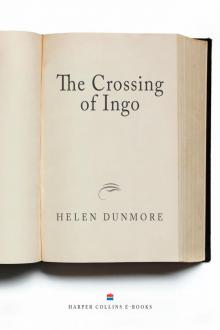 The Crossing of Ingo
The Crossing of Ingo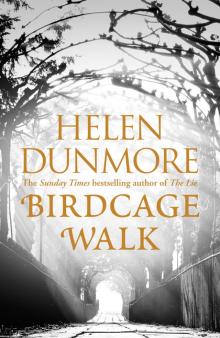 Birdcage Walk
Birdcage Walk Glad of These Times
Glad of These Times Counting the Stars
Counting the Stars With Your Crooked Heart
With Your Crooked Heart Burning Bright
Burning Bright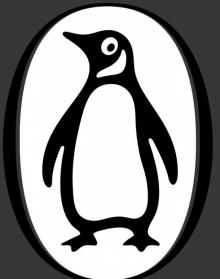 House of Orphans
House of Orphans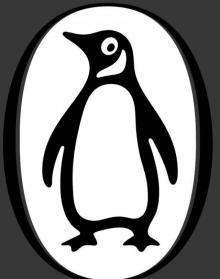 Mourning Ruby
Mourning Ruby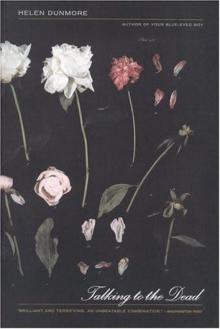 Talking to the Dead
Talking to the Dead Exposure
Exposure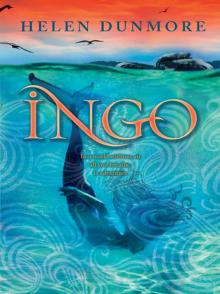 Ingo
Ingo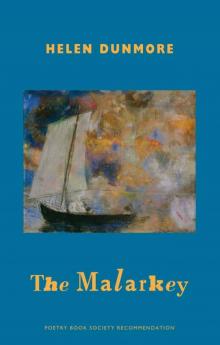 The Malarkey
The Malarkey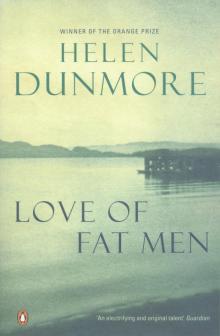 Love of Fat Men
Love of Fat Men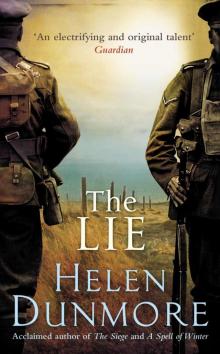 The Lie
The Lie The Siege
The Siege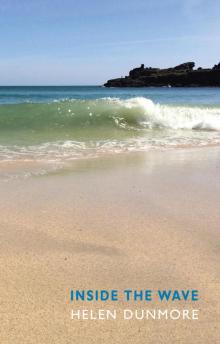 Inside the Wave
Inside the Wave Counting Backwards
Counting Backwards The Land Lubbers Lying Down Below (Penguin Specials)
The Land Lubbers Lying Down Below (Penguin Specials)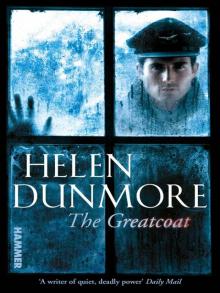 The Greatcoat
The Greatcoat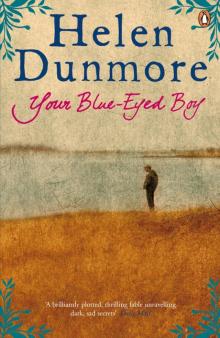 Your Blue Eyed Boy
Your Blue Eyed Boy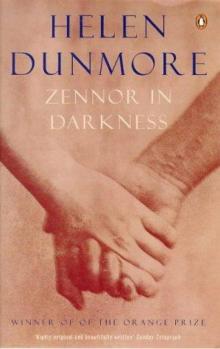 Zennor in Darkness
Zennor in Darkness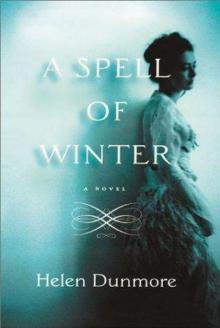 Spell of Winter
Spell of Winter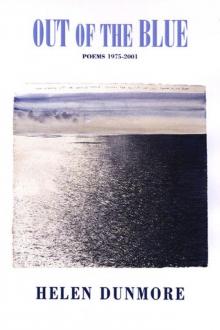 Out of the Blue: Poems 1975-2001
Out of the Blue: Poems 1975-2001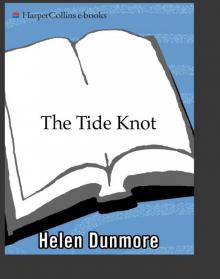 Tide Knot
Tide Knot The Betrayal
The Betrayal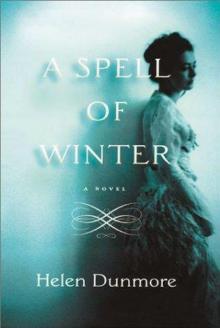 A Spell of Winter
A Spell of Winter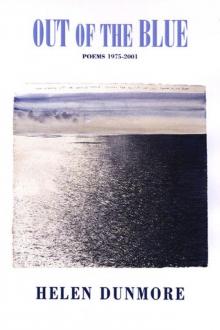 Out of the Blue
Out of the Blue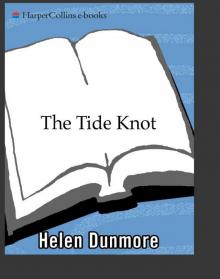 The Tide Knot
The Tide Knot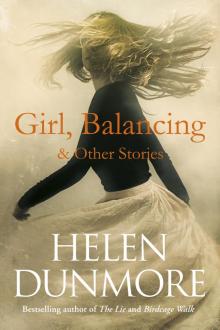 Girl, Balancing & Other Stories
Girl, Balancing & Other Stories Betrayal
Betrayal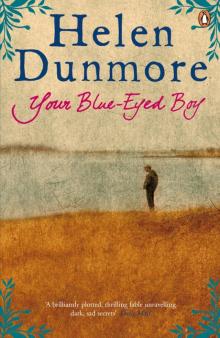 Your Blue-Eyed Boy
Your Blue-Eyed Boy